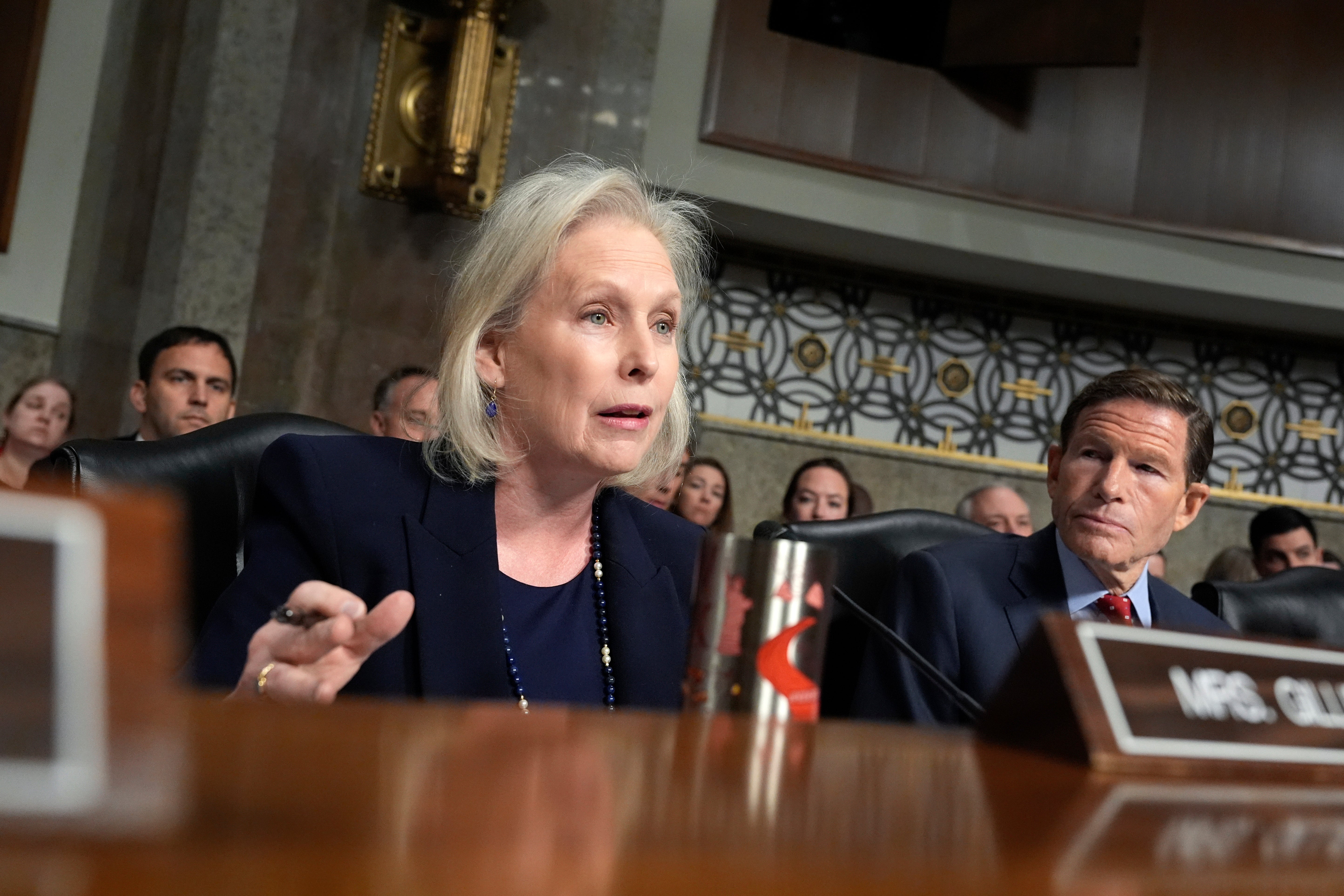Roger Wicker is hardly anyone’s idea of a far-right bomb thrower. When he opened the Senate Armed Services Committee’s confirmation hearing for Pete Hegseth, President-elect Donald Trump’s nominee to lead the Department of Defense, he wore a lapel pin with the Ukrainian and U.S. flag on it.
But the white-haired Mississippian began his questioning with his Southern drawl by bringing up allegations that Hegseth had sexually assaulted a woman — but pointedly noted the claims all came “from liberal media publications.”
That would set the tone for the rest of the extraordinary hearing, as multiple Republicans angled to defend Hegseth against damning misconduct claims and his past comments about women serving in the military.
The confirmation hearing comes about two months after Matt Gaetz, the firebrand former Florida congressman and Trump acolyte, rescinded his nomination to lead the Department of Justice as it became increasingly clear he lacked the necessary support.

But Hegseth is different. After a few rocky weeks in late 2024 — when his nomination briefly appeared doomed — Republicans, with Trump remaining squarely behind him, rallied around Hegseth, who became a sort of litmus test for loyalty to Trump.
For the last two months, conservatives put pressure on Iowa Senator Joni Ernst, a National Guard veteran and sexual assault survivor, to get behind Hegseth when it looked like she might not vote to confirm him.
And during the hearing, Ernst took a soft approach, seeming pleased by Hegseth’s responses when she asked him about previous comments that women shouldn’t service in combat roles. She asked him directly, “As secretary of defense, will you support women continuing to have the opportunity to serve in combat roles?”
“Yes, women will have access to ground combat roles, given the standards remain high,” he said.
Ernst was by far the biggest wild card on the Republican side of the dais. Her teeing up that question for Hegseth will likely give permission to Republicans who might have been uneasy about confirming him — like Susan Collins of Maine or Thom Tillis of North Carolina — the permission to ultimately vote “yes.”
Meanwhile, Kirsten Gillibrand and Jeanne Shaheen, the committee’s two most senior Democratic female members of the committee, excoriated Hegseth for his comments about women.
Throughout the hearing — and as he repeatedly denied misconduct claims as being nothing more than “anonymous smears” — Hegseth alluded to being a redeemed man in need of “forgiveness” for previous bad behavior. Republicans, naturally, ate it up. In perhaps one of the most bizarre moments of the hearing, Oklahoma’s Markwayne Mullin said that “the only reason I’m here and not in prison is that my wife loved me too.”
But Mullin went even further.
“How many senators have showed up drunk to vote at night,” he said. “Don’t tell me you haven’t seen it, because I know you have. And then how many senators have do you know have gotten a divorce for cheating on their wives? No? But it’s for show.”
As most Republicans gave the 44-year-old former weekend television host an overwhelmingly warm reception, Democrats on the committee didn’t give much reason for Hegseth’s critics to feel any optimism.

When it came time for Rhode Island Senator Jack Reed, panel’s ranking member, a West Point graduate and ex-Army ranger, to question his fellow Army veteran, the 75-year-old’s voice was so soft that it could hardly be heard even with the aid of a microphone. The media-savvy Hegseth easily talked over him with the practiced air of someone who’d spent years making themselves heard in television crosstalk.
Meanwhile, multiple Democrats pressed Hegseth on the same assault allegations that he’d already repeatedly dismissed and denied under softer questioning from Wicker. But hardly anyone on their side of the aisle pressed the would-be defense secretary on his ardent support for multiple convicted war criminals.
On multiple occasions during Trump’s first term, Hegseth used his television post to argue successfully for Trump to pardon soldiers who’d been turned in by people under their command for committing atrocities and had been convicted at courts-martial — by juries of their peers after trials conducted under the Unifom Code of Military Justice — for offenses ranging from outright murder to violating the Geneva Conventions by posing with corpses of slain enemies, something American troops have been prohibited from doing for over a century.
Not one Democrat on the panel even attempted to follow up on a disturbing statement he made under questioning by Reed when he alleged that officers in the U.S. military Judge Advocate General’s corps — lawyers trained in the laws of war who are responsible for laying out rules of engagement and counseling troops on how to avoid committing war crimes — were motivated not by a sense of duty, but by a craven desire for career advancement.
That might have presented a missed opportunity for Democrats to give their GOP colleagues not on the Armed Services Committee a reason to avoid voting to confirm him. Combined with Republicans’ robust defense of the nominee means that Hegseth is likely in a better spot than he was going into these hearings and will likely be confirmed.
That would have been unthinkable when Trump first nominated him. But it shows how in the end, the best definition of a Republican is loyalty to Trump and Democrats have yet to penetrate that armor.







